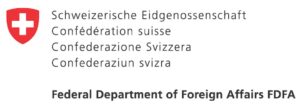This report from early 2012 reviews civilian possession of small arms and light weapons (SALW) in South Sudan and processes to control this possession, including civilian disarmament. It begins with an overview of the history of South Sudan, followed by an analysis of the factors that have contributed to SALW proliferation and ultimately a ‘gun culture’ in the country. It then provides an overview of the problems that SALW are currently causing in South Sudan, from increasing the levels of deadly cattle raiding to the (re)formation of armed groups such as the White Army.
Approaches to control civilian possession of SALW are examined, including through civilian disarmament efforts, the formation of the Bureau for Community Security and Small Arms Control (BCSSAC) and regional arms control agreements. While not providing a comprehensive analysis of every civilian disarmament exercise within South Sudan, the paper examines selected experiences to draw out lessons that are relevant to the country as a whole.






